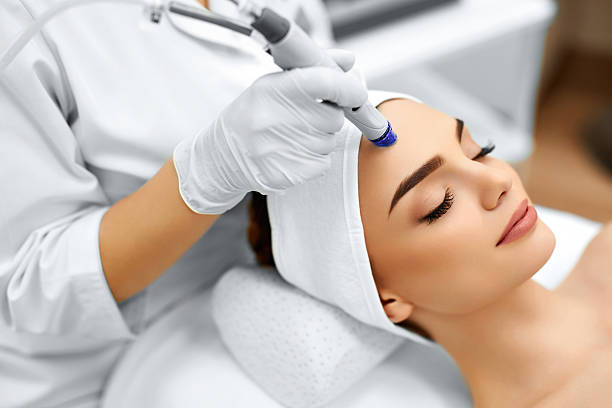Picture yourself looking and feeling younger, and having muscles that recover faster after a workout. Sounds good, right? This blog post will introduce you to an innovative treatment that can help you achieve these goals. It’s called peptide therapy.]

1. Peptide Therapy: An Overview
If you’re wondering, “What exactly is peptide therapy?”, you’re not alone. This form of treatment may sound like it’s straight out of a sci-fi movie, but it’s actually a cutting-edge approach to anti-aging and muscle growth.
Peptide therapy involves using specific peptides—short chains of amino acids, the building blocks of proteins—in precise combinations and dosages to achieve desired health outcomes. Now, you might be thinking, “Amino acids? Proteins? This sounds like rocket science!” But don’t worry, you don’t need a PhD to understand the basics.
Here’s a simple breakdown:
- Peptides are short chains of amino acids. They’re smaller than proteins and easier for your body to absorb.
- Peptide therapy uses these peptides to signal specific reactions in the body. It’s like giving your body a set of instructions on what to do.
The beauty of peptide therapy lies in its customization. Different peptides can be combined to match your unique needs. Whether you’re looking to reduce wrinkles, enhance your muscle tone, or both—peptide therapy could be the key to unlocking your best self.
So now that you’ve got a handle on what peptide therapy is, are you ready to dive into the specific benefits? Stay tuned for the next sections where we’ll explore how peptide therapy can be a game-changer for anti-aging and muscle growth.
2. Anti-Aging Benefits of Peptide Therapy
Now, let’s talk about time. Or rather, how peptide therapy can help you turn back the hands of it. You might be wondering, “Can peptides really help me look younger?” The answer is a resounding yes! Here’s why.
Peptides and Your Skin
When we talk about anti-aging, we often think about our skin first. And for good reason—our skin is often the first place we notice the signs of aging. But here’s the good news: peptides can help.
- Collagen production: Peptides signal your skin to produce more collagen. This is important because collagen is the protein responsible for keeping our skin firm, plump, and youthful.
- Reduced wrinkles: By boosting collagen production, peptides can help reduce the appearance of fine lines and wrinkles. So those pesky crow’s feet or laugh lines? Peptides can help with that.
- Improved skin texture: Got uneven skin texture? Peptides to the rescue again. They can improve skin elasticity and promote smoother, more even skin tone.
Peptides and Your Overall Health
But peptide therapy isn’t just skin-deep. Beyond just making you look younger, anti aging peptide can also help you feel younger.
- Enhanced immune function: Peptides can boost your immune system, helping you ward off illnesses and bounce back faster when you do get sick.
- Increased energy levels: Who doesn’t want more energy? Some peptides can boost your metabolism, helping you feel more energetic and lively.
- Better sleep: If you’ve been struggling with insomnia or poor-quality sleep, certain peptides can help regulate your sleep patterns for a more restful night.
So, you see, peptide therapy can offer a holistic approach to anti-aging. It’s not just about looking younger—it’s about feeling younger, too. Next, let’s delve into how peptide for muscle growth.
3. Muscle Growth Advantages with Peptide Therapy
From improving your skin to enhancing your overall health, peptide therapy seems to be a real game-changer. But wait—it doesn’t stop there. If you’re into fitness or looking to build muscle, peptides can be a vital part of your routine. Let’s take a closer look.
Boosting Muscle Growth and Strength
Peptide therapy can play a significant role in muscle development and strength. Here’s how:
- Stimulating growth hormone production: Certain peptides act as growth hormone secretagogues, meaning they stimulate the production of growth hormone. This hormone is key for muscle growth and recovery.
- Improving muscle recovery: If you’ve been hitting the gym hard, your muscles need time to recover. Peptides can speed up this process, reducing muscle soreness and helping you get back to your workouts sooner.
- Increasing muscle mass: Some peptides can directly stimulate muscle growth, helping you achieve those gains you’ve been working so hard for.
Enhancing Athletic Performance
Peptide therapy isn’t just for muscle growth. It can also enhance your overall athletic performance:
- Boosting energy and endurance: Some peptides can increase your energy levels and improve your endurance, helping you push through even the most intense workouts.
- Improving sleep: Good sleep is essential for athletic performance, and peptides can help ensure you get a good night’s rest. Better sleep can lead to better workouts and faster recovery times.
- Reducing inflammation: Intense workouts can lead to inflammation, but peptides can help reduce this, helping you recover faster and perform better.
So whether you’re a gym rat or just starting your fitness journey, peptide therapy can be a powerful ally. But as with any therapy, it’s important to use it correctly to reap the full benefits. In the next section, we’ll cover how to use peptide therapy for maximum benefits.
4. How to Use Peptide Therapy for Maximum Benefits
You’re probably thinking, “Great, I’m sold on peptide therapy for muscle growth. But how do I use it effectively?” Well, you’re in luck. Here’s a simple guide to using peptide therapy to maximize muscle growth and overall athletic performance.
Choosing the Right Peptide
Not all peptides are created equal. Some are more suited for muscle growth, while others might be more beneficial for anti-aging.
- For muscle growth: Consider peptides like GHRP-6, GHRP-2, or Ipamorelin. These can stimulate the release of growth hormone, which is a key player in muscle development.
- For athletic performance: Peptides like CJC-1295 or Thymosin Beta 4 can help increase energy levels and improve recovery times, making them a great choice for those looking to enhance their athletic performance.
Correct Dosage and Timing
Getting the dosage and timing right is crucial when using peptide therapy. Here’s a quick guide:
- Dosage: The right dosage can vary depending on the specific peptide and your individual needs. Always consult with a medical professional before starting peptide therapy to ensure you’re using the right dosage.
- Timing: Some peptides work best when taken before a workout, while others might be more effective when taken at night. Again, a medical professional can guide you on the best timing for your specific peptide.
Combining Peptide Therapy with a Healthy Lifestyle
Peptide therapy can be a powerful tool for muscle growth and athletic performance, but it’s not a magic bullet. It’s most effective when combined with a healthy lifestyle:
- Diet: Make sure you’re getting enough protein to support muscle growth. Also, consider including anti-inflammatory foods in your diet to help with recovery.
- Exercise: Regular strength training exercises are key for muscle growth. Make sure to also include plenty of rest days to allow your muscles to recover.
- Sleep: Good sleep is crucial for muscle recovery and overall athletic performance. Aim for at least 7-9 hours of quality sleep each night.
Using peptide therapy can be a great way to boost your muscle growth and improve your athletic performance. But remember, always consult with a medical professional before starting any new therapy.
5. Risks and Considerations in Peptide Therapy
Alright, let’s talk about the less glamorous side of peptide therapy: the risks and considerations. Just like with any therapy, it’s important to be aware of potential downsides.
Understanding Potential Side Effects
Peptides are generally well-tolerated, but they’re not without potential side effects. Here’s what you need to know:
- Common side effects: These might include water retention, increased hunger, or temporary numbness or tingling.
- Serious side effects: Though rare, serious side effects like changes in heart rate, dizziness, or severe rash can occur. If you experience any serious side effects, it’s important to seek medical attention immediately.
The Importance of Quality Products
Not all peptide products are created equal. Ensuring you’re using high-quality, pure peptides is essential. Here’s why:
- Safety: Low-quality peptides might be contaminated with harmful substances, which could cause serious health issues.
- Effectiveness: High-quality peptides are more likely to provide the desired benefits, whether that’s muscle growth or anti-aging.
Regular Monitoring and Consultation
Finally, it’s important to regularly monitor your health and consult with a medical professional throughout your peptide therapy journey. Here’s why:
- Monitoring: Regular blood tests can help ensure the therapy is working as intended and that it’s not causing any adverse effects.
- Consultation: Regular check-ins with a medical professional can help adjust your peptide therapy as needed and address any concerns you might have.
Peptide therapy can be a powerful tool for muscle growth and anti-aging, but it’s not without its risks. Being aware of these potential downsides can help you make an informed decision and use peptide therapy safely and effectively.

